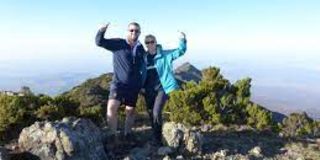Safety concerns for Mt Hanang climbers after tragic mudslide

What you need to know:
- Tour guides based in Arusha scaled the 3,240-metre-high mountain yesterday only to find it calm but witnessed the impact of the killer avalanche on the terrain.
Arusha. How safe is climbing Mt Hanang after the recent catastrophic flash floods and mudslides that killed 89 people?
Tour guides based in Arusha scaled the 3,240-metre-high mountain yesterday only to find it calm but witnessed the impact of the killer avalanche on the terrain. “We have seen where the raging waters could have started, bringing down huge rocks and logs,” said one of them, Mathew Gidameyesh.
He said on the phone as he and fellow climbers approached the summit that Mt Hanang was safe for the climbers despite the recent tragedy.
“It is all calm. Water was trickling normally downstream in the gorges with no signs it could drown anybody,” he told The Citizen.
Mr Gidameyesh said they organised the expedition to see if the mountain was safe for climbing after the recent calamity.
The trip was also intended to counter reports, which circulated widely on social media, that there was a volcanic eruption that triggered the killer floods.
The climb involving four of them began at Jarodom, one of the severely hit hamlets, at 9 am, reaching the summit at 3:28 pm.
He said they did not encounter the raging waters and cascading rocks and logs that created much havoc on December 3rd.
“Instead, we saw the impact created by the mudslide on the mountain slopes, knocking down the trees,” he told this newspaper. Mt Hanang, the fourth highest in Tanzania, attracts about 400 climbers a year, many of them foreign tourists.
Up to 2,000 locals, including schoolchildren and residents of the townships, often climb its slopes for fun. Mr Gidameyesh, who operates his tour business in Arusha, hails from Jarodom village, which lost over a dozen people in the killer floods.
The village on the foothills of the mountain is believed to be where the tragedy began following the disintegration of rocks that triggered the avalanche.
Strong waves of water and mud carrying huge rocks knocked down houses along the natural waterway in the vicinity, all the way to Katesh town, creating never-seen havoc.
However, another member of yesterday’s expedition team, Thomas Safari, said the avalanche could have begun at higher altitudes. “We saw how the fragile soils and rocks high up on the mountain have been impacted by what we believed to be the December 3rd rains,” he said.
“Now we can tell the world that Mt Hanang is safe for climbing,” added the tour guide, who coordinates mountain climbing from Arusha.
Mt Hanang, an oasis in the generally drought-prone Hanang plains, has in recent years been promoted for tourism.
Its potential manifests in hiking, walking safaris and cultural tourism, which are located in the heart of the indigenous communities.
A few years ago, it was elevated to a Nature Forest Reserve under the Tanzania Forest Service (TFS) to enhance both conservation and tourism.
TFS, a state-run agency established in 2009, has a total of 462 natural forest reserves and 23 plantations under its care across the country.
In 2015, about 100 foreign tourists climbed the mountain, according to statistics. Its nature reserve alone covers 5,871 hectares.



